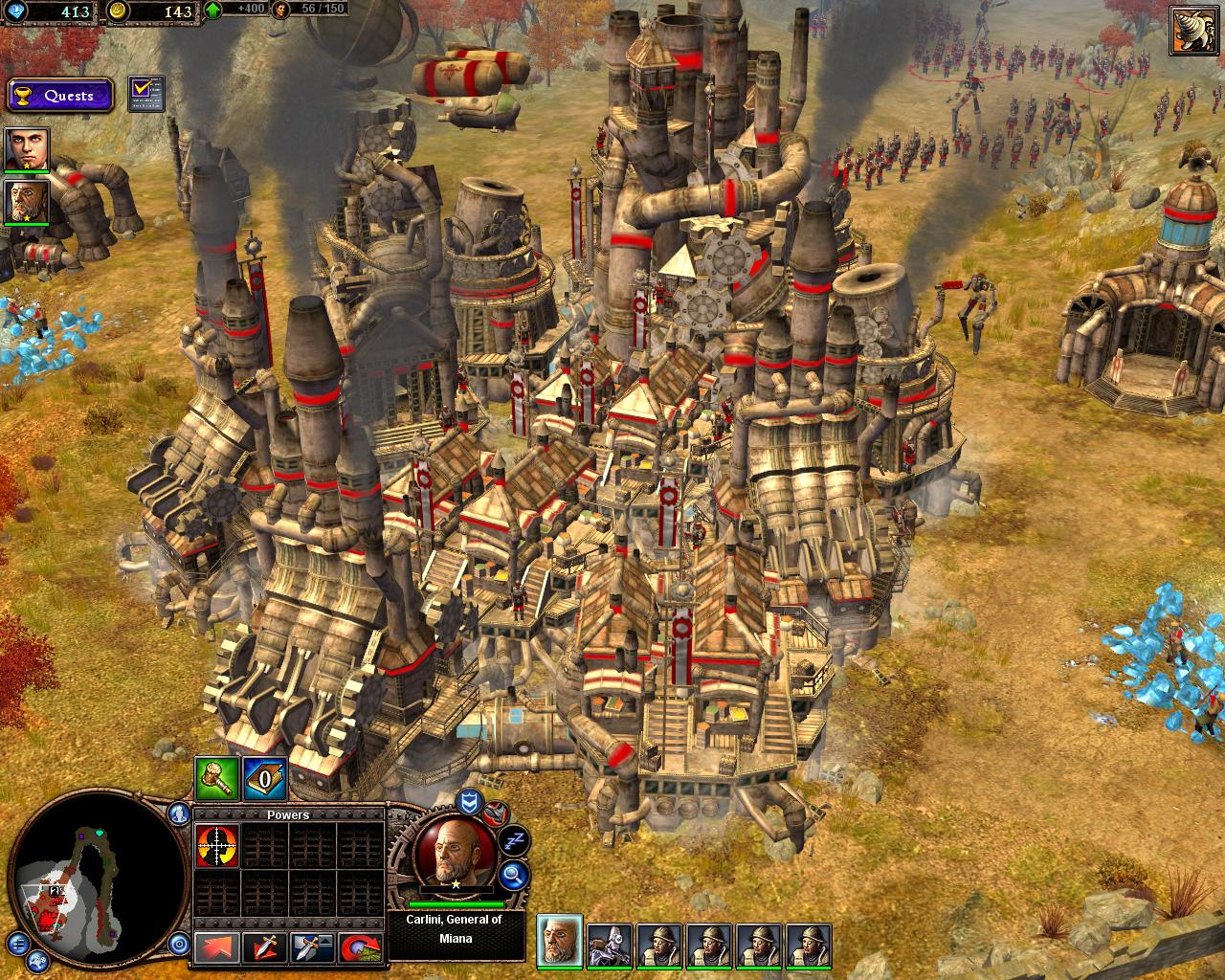

Naturally, the world changes over time so players must employ different technologies, weapons and trade strategies as they move through the Medieval Age to the Gunpowder Age to the Information Age and beyond. While the game play begins roughly 6,000 years in the past, the objective is to advance a civilization through eight epochs to present times. For example, the Greeks can gather knowledge quicker than competitors because libraries and universities are cheaper to construct, while the Turks' artillery and siege units enjoy a greater range and the siege unit upgrades are free. Players take control over one of 18 civilizations, such as the Aztecs, Chinese, British, Mongols or Spanish, each with its own unique attributes. Players achieve this by waging war, employing diplomacy, engaging in commerce or by taking over two-thirds of the game map.

Taking over the world is the goal of the game. "Rise of Nations" from Microsoft Game Studios successfully combines the best elements from both gaming styles - so well in fact that it's easily the finest strategy game of the year to date. On the other hand, real-time strategy games, such as the popular "Command & Conquer" or "Warcraft" series, force players to make on-the-spot decisions about many different events happening at the same time.

Like its name suggests, turn-based games, such as chess or the classic PC game "Civilization," allow players to take turns with opponents (human or computer-controlled) to make tactical decisions while the game is paused.

Editor's Note: The opinions expressed in this column are solely those of Marc Saltzman, a freelance technology journalist whose reviews also appear on the Gannett News Service.Īn ongoing debate rages among strategy game enthusiasts about what kind of game play is better: "real-time" or "turn-based."


 0 kommentar(er)
0 kommentar(er)
